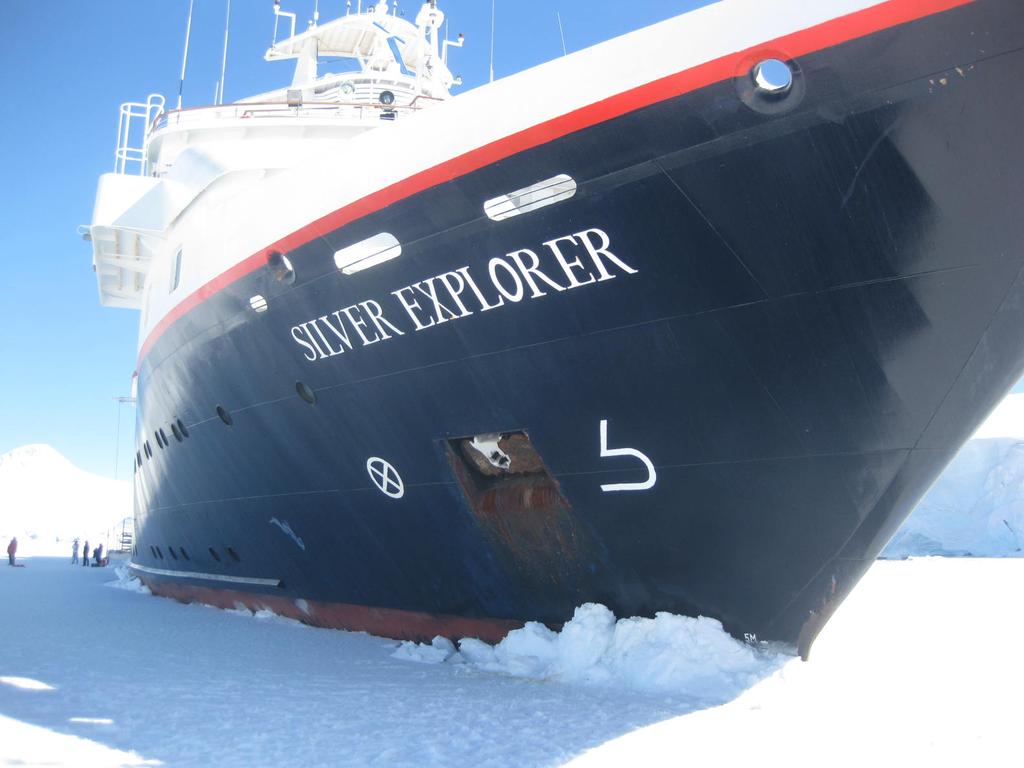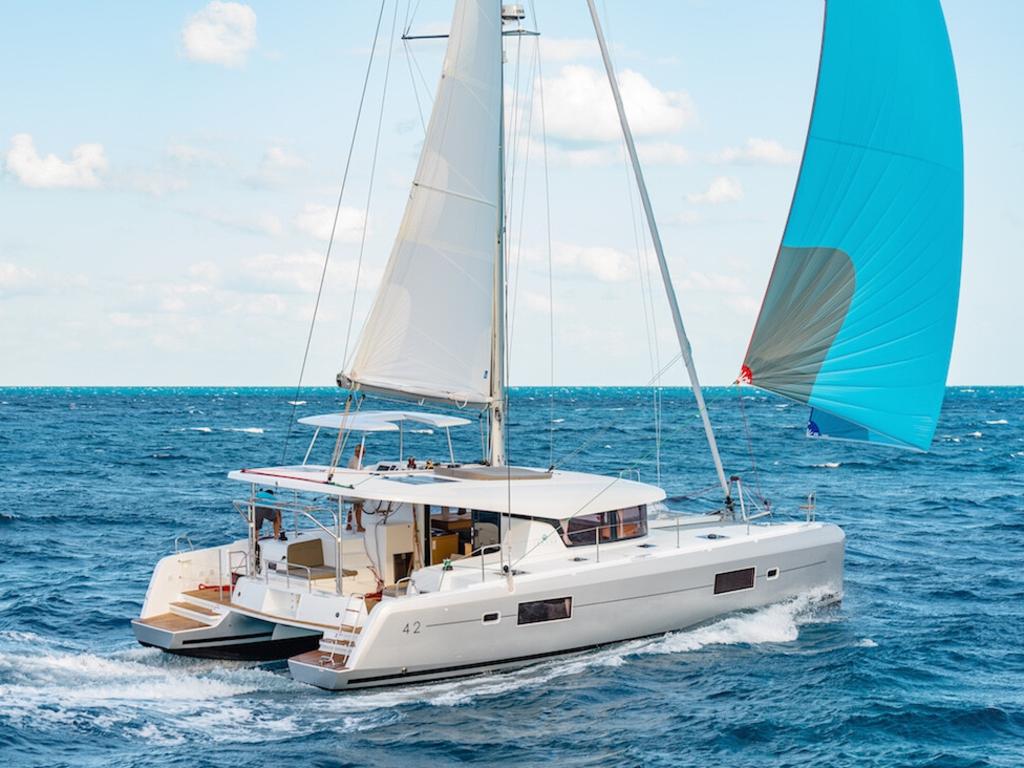What happens when a cruise ship becomes a crime scene?
Laws surrounding misdeeds at sea are complex, but rest assured, the captain will lock you up for criminal behaviour.

In September last year, MS Caledonian Sky, a 114-guest luxury expedition ship then operated by APT, was arrested off the West Australian coast. Not the captain or crew, but the ship itself – an Admiralty Marshal ordered it not to stray beyond 12 nautical miles of Broome until a federal court case involving the ship management company could be resolved. Fortunately for the ship’s new operator, Captain Cook Cruises Fiji, MS Caledonian Sky was released a month later and recently embarked on its new life cruising in Fiji, Tonga and Samoa.
Cruise ship arrests are pretty rare, and a raft of international, national and state laws determine when and how they occur. Strangely, though, another ship was arrested off Broome in 2022 when its owners, Island Escape Cruises NZ, went bust. The brand new, boutique vessel Island Escape was in custody from June that year until February 2023, when it was acquired for the bargain price of $5.5m by French cruise line Ponant. The 30-guest ship, now known as Paspaley Pearl, is due to set sail in the Kimberley, Indonesia’s Raja Ampat and the Spice Islands, and Papua New Guinea on year-round itineraries from June.

You’re more likely to hear the odd story about people being arrested at sea or thrown in the “brig”, to use the nautical term for an onboard jail named after the two-masted brigantines that were used by British and American fleets to transport criminals until the 1800s.
The brig might be a cabin that’s lockable from the outside rather than a cell with bars, and the arresting officers are the cruise line’s security team rather than police, but if you commit a serious crime on a ship the captain has complete authority to have you banged up on board until you can be offloaded at the nearest port, to be dealt with ashore. We are talking serious crimes here – murder, drug-smuggling, assault – security teams handle incidents such as intoxicated guests making a nuisance of themselves without resorting to incarceration in the brig.
If you commit a serious crime on a ship the captain has complete authority to have you banged up on board
Laws surrounding crime at sea are, like all maritime laws, extremely complicated. Broadly speaking, any crimes that occur within 12 nautical miles (about 22km) of a coastline fall under the jurisdiction of that country. However, because ships are often registered in one country while operated and owned from another, if a serious crime is committed when the ship is sailing in international waters things get much trickier. It’s all to do with where ships are registered, or “flagged”.
International law dictates that all ships must be registered in a country, and that gives the ship its nationality. The most common flag states are the Bahamas, Panama and Bermuda, for reasons that require a far lengthier discussion than we can cover here. So, back to the criminal element. If a crime is committed on a ship that’s registered in, say, the Bahamas while it is sailing in the South Pacific, then Bahamas law may apply.


Only two local cruise companies operate Australian-flagged ships: True North Adventure Cruises and Coral Expeditions. The companies have to abide by Australian laws regarding employment, safety, taxation and environmental regulation.
Only Australian-flagged and crewed ships can gain a “general licence” to operate between Australian ports, meaning that a ship sailing in the Kimberley doesn’t need to sail to a different country, such as Indonesia, to make a “technical stop” mid-voyage.
This relates to cabotage, another highly complex and contentious set of laws that various countries, including Australia, use to regulate shipping movements by international vessels within their waters. You could spend hours researching the implications of the federal Coastal Trading (Revitalising Australian Shipping) Act 2012, as I did, and emerge none the wiser – other than knowing slightly more about why some ships make these technical stops. But why are some foreign-flagged cruise ships exempt from these regulations and not others?
Moving right along, first-time cruisers often ask whether everyone has to do the muster drill – an onboard safety briefing – before the ship leaves port. The simple answer is yes. Under Safety of Life at Sea (SOLAS) regulations laid down by the International Maritime Organisation after the shocking sinking of the Costa Concordia in 2013, which resulted in the deaths of 32 people, it is compulsory for all passengers to attend the drill.
It’s a matter of being aware of safety procedures in case of any type of emergency and knowing what to do if the deafening emergency signal – seven short blasts followed by one long blast – is sounded. The first version of SOLAS conventions was implemented in 1914, two years after the Titanic disaster killed more than 1500 people, and it wasn’t until 2015 that it became compulsory to hold a muster drill before a ship sets sail.

Before the pandemic changed a whole raft of on-board safety protocols, passengers had to gather in crowded lounges or on deck for the drill. Today, some cruise lines require you to watch a short demonstration of the safety procedures on your stateroom TV then check in with crew members at various muster points around the ship. If you can’t be bothered to do it, you’re likely to be summoned over the PA system and the captain is within his or her rights to demand you disembark before the ship even leaves port.
Thankfully, very few cruise ships have sunk over the past 110 years but staff are thoroughly trained in dealing with crew and passenger deaths at sea. As well as being legally required to carry enough lifeboats and life jackets for everyone onboard, ships have to carry body bags and maintain a morgue. Considering that industry body Cruise Lines International Association expects 36 million people to cruise worldwide in 2024, it is inevitable some of them will pass away during a voyage. The hefty cost of repatriating a body of someone who dies far from home is just one more reason for cruisers to take out comprehensive travel insurance.
On that cheery note, many avid cruisers ask families or friends to scatter their ashes at sea when they do depart this mortal coil. Most cruise lines are fully au fait with this and it is perfectly legal, as long as you have the line’s permission. However, there are certain restrictions. The urn containing the ashes must be sealed and biodegradable – it’s not quite the scenario portrayed in The White Lotus, where Tanya McQuoid scatters her mother’s ashes freely into the ocean from the side of a motorboat.





To join the conversation, please log in. Don't have an account? Register
Join the conversation, you are commenting as Logout